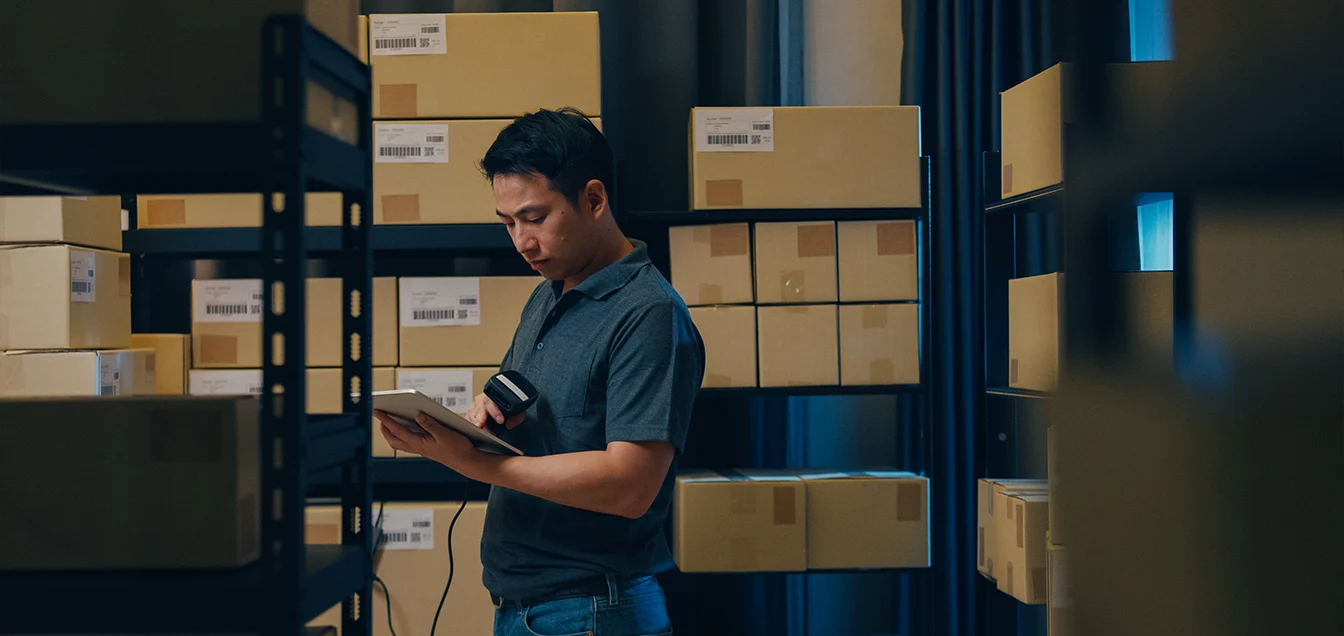In today’s competitive landscape, the importance of omnichannel fulfillment cannot be overstated. As businesses look towards 2025, developing a robust omnichannel strategy is vital for meeting customer expectations while driving efficiency. Companies that embrace this approach stand a better chance of thriving in the evolving marketplace. This blog delves into the various dimensions of omnichannel fulfillment, elucidating its value, benefits, challenges, and strategies, aiming to provide a comprehensive understanding of this crucial aspect of modern business.
Table of Contents
Understanding the Value of Omnichannel Fulfillment
The value of omnichannel fulfillment lies in its ability to seamlessly integrate multiple channels, ensuring a smooth and cohesive shopping experience for customers. This approach allows businesses to cater to consumer preferences, whether they order online, in-store, or through mobile applications. By optimizing the supply chain and utilizing fulfillment centers strategically, businesses can enhance customer satisfaction and retention.
One of the key features that contribute to the value of omnichannel fulfillment is inventory management. When businesses have real-time visibility into stock levels across all their channels, they can fulfill orders efficiently. A well-implemented omnichannel strategy enables retailers not only to meet customer demands seamlessly but also to optimize their operations. For example, businesses that have multiple sales channels can dynamically allocate inventory based on real-time demand, thus minimizing stockouts and overstock situations, highlighting the importance of omnichannel fulfillment in driving operational efficiency and customer satisfaction.
For instance, Sephora’s omnichannel strategy allows customers to check product availability online and provides in-store pickups. This system enhances the shopping experience while tapping into the brick-and-mortar store’s inventory, reducing shipping costs and time.
The Key Role of Omnichannel Fulfillment
The key role of omnichannel fulfillment in 2025 will be to enable businesses to adapt to the rapid shifts in consumer behavior. As buying habits become increasingly complex and multifaceted, companies must harness an omnichannel strategy to remain competitive. For example, leveraging 3PL logistics in Canada provides businesses the flexibility needed to meet customer demands across various regions.
Moreover, the significance of 3PL fulfillment cannot be ignored. By outsourcing logistics to third-party providers, businesses can scale their operations without the burden of maintaining warehouses and staffing. This flexibility allows retailers to focus on their core competencies while optimizing their supply chain, ultimately underscoring the importance of omnichannel fulfillment. Furthermore, utilizing comprehensive fulfillment services in Canada ensures that businesses can meet diverse customer demands while maintaining efficiency.
The success stories of large retailers like Walmart and Target exemplify the importance of omnichannel fulfillment. Both organizations have invested heavily in technology to unify their inventories across online and physical stores. By developing efficient logistics strategies, they can cater to customer desires, making shopping a seamless experience.
A report from McKinsey estimated that retailers with strong omnichannel engagement retain an average of 89% of their customers compared to single-channel counterparts, emphasizing the key role of omnichannel fulfillment in customer retention.
Omnichannel Fulfillment Examples

Several leading companies have successfully implemented omnichannel fulfillment strategies that demonstrate its effectiveness. For instance, Amazon’s integration of its online and warehouse operations allows it to offer the fastest shipping in Canada, giving customers the ability to receive their orders on the same day. This operational success underscores the importance of omnichannel fulfillment and can be attributed to its comprehensive logistics and fulfillment strategies.
Another exemplary case is Starbucks. The coffee giant’s mobile app allows customers to order ahead, choose their pickup location, and pay digitally—all of which integrate seamlessly with their in-store experience. Starbucks has recognized the importance of omnichannel fulfillment in retaining loyal customers and has seen significant gains as a result.
Other Notable Examples:
- Zara: The fashion retailer has effectively combined online and offline inventories to allow customers to order products online and pick them up at local stores, showcasing a true omnichannel approach.
- Best Buy: This electronics retailer integrated its online and in-store shopping experience, offering services like product reservation and in-store pickup, thus optimizing order fulfillment.
- Target: The retail giant utilizes its physical stores as mini-fulfillment centers that fulfill online orders, reducing delivery times and improving efficiency.
- Nike: With their “Buy Online, Pick Up In-Store” option, Nike allows customers to shop online while also providing the immediate satisfaction of picking their orders up at local stores.
Through these examples, businesses can see the importance of omnichannel fulfillment in responding rapidly to customer needs, effectively blending physical and digital shopping experiences, and improving sales performance, particularly through retail store fulfillment strategies that enhance the overall customer experience.
Omnichannel Fulfillment Technology
The evolution of fulfillment technology plays a pivotal role in enhancing the importance of omnichannel fulfillment. Advanced tools like order management systems, inventory management software, and automated warehousing solutions provide businesses with real-time insights into stock levels and order statuses. In 2025, the integration of artificial intelligence and machine learning will further streamline these processes, allowing businesses to predict and react to customer demand more accurately.
For example, many businesses are using data analytics to drive their inventory systems. By analyzing trends and customer behaviors, retailers can make informed decisions about stock levels and distribution methods. Fulfillment centers employing technology like robotics will further reduce human error and speed up order processing times, emphasizing the importance of omnichannel fulfillment in today’s retail world.
The Impact of Fulfillment Technology:
- Increased Efficiency: Automation speeds up the order fulfillment process, minimizing delays.
- Enhanced Visibility: Real-time tracking provides customers with better transparency regarding their orders, which can improve their overall experience.
- Reduced Errors: Technology reduces the likelihood of human errors, leading to more accurate order fulfillment.
- Adaptation to Market Trends: By employing advanced technologies, retailers can pivot quickly in response to market changes.
- Section 321 Fulfillment: This strategy allows sellers to comply with international shipping regulations while also streamlining logistics, further showcasing the adaptability required in modern fulfillment strategies.
With emerging technologies, businesses can further leverage the importance of omnichannel fulfillment to create an advanced, data-driven distribution system.
Omnichannel Fulfillment Strategies

Developing effective omnichannel fulfillment strategies is necessary for businesses aiming to thrive by 2025. Companies should prioritize inventory visibility across all channels, allowing for accurate stock levels in real-time. This approach highlights the importance of omnichannel fulfillment and leveraging fulfillment services in Canada can also provide additional support.
Key Strategies Include:
- Integrating Systems: Aligning online and offline systems ensures that stock levels are accurate irrespective of the purchasing channel. Companies like Target and Walmart have effectively integrated their backend systems for this purpose.
- Utilizing Data Analytics: By analyzing consumer data, businesses can better anticipate demand, enabling them to stock items effectively and avoid overstock situations.
- Implementing Automation: Businesses should consider investing in automated fulfillment centers. The use of robotics and AI can significantly reduce manual labor costs and speed up order processing times.
- Enhancing Customer Interaction: Engaging customers through personalized marketing and targeted offers can enhance their experience, making them more likely to return.
- Focusing on Last-Mile Delivery: The last mile is critical in the fulfillment chain. Businesses should explore options like strategically located local fulfillment centers, such as a Fulfillment Center Vancouver, to improve delivery speed and quality.
These strategies highlight the growing significance of the importance of omnichannel fulfillment in aligning operational capabilities with customer expectations. As consumer behavior continues to shift, those businesses that adapt quickly will emerge as leaders in their respective industries.
Challenges in Omnichannel Fulfillment
While the benefits of omnichannel fulfillment are numerous, specific challenges must be navigated. Inventory management becomes increasingly complicated, especially when dealing with massive data sets across multiple sales channels. Additionally, inconsistent customer experiences can arise if the technology and logistics are not aligned, highlighting the importance of omnichannel fulfillment in overcoming these obstacles.
Some of the primary challenges include:
- Complex Inventory Management: Businesses face hurdles in accurately managing the inventory across different platforms, leading to potential stock discrepancies.
- Logistical Issues: Coordinating between different fulfillment channels (warehouse, store, direct shipping) can create operational complexities.
- Cost Factors: While omnichannel can lead to better customer satisfaction, the initial investment in technology and infrastructure can be substantial.
- Consumer Expectations: With the rise of e-commerce, consumers have come to expect rapid service, putting pressure on businesses’ fulfillment capabilities.
To overcome these challenges, businesses need a well-rounded approach that includes robust systems, ongoing training, and strategic partnerships with logistics providers. Emphasizing flexibility and adaptability will allow companies to respond to shifts in the marketplace effectively, underscoring the importance of omnichannel fulfillment in driving operational success.
Benefits of Omnichannel Fulfillment
Beyond logistical efficiency, the benefits of omnichannel fulfillment extend throughout the entire business model. Enhanced customer satisfaction is a key driver of revenue growth, with studies showing that companies with strong omnichannel strategies retain over 89% of their customers. Additionally, businesses that effectively implement an omnichannel strategy see an increase in sales by up to 30%. This shift not only elevates the customer experience but also drives profitability, highlighting the importance of omnichannel fulfillment in achieving sustained business success.
Key Benefits Include:
- Improved Customer Experience: With seamless interactions across multiple channels, customers feel valued and catered to, leading to higher loyalty.
- Increased Sales: Businesses employing omnichannel strategies capitalize on diverse consumer purchasing preferences, driving conversion rates.
- Reduced Operational Costs: Efficient inventory management reduces waste and streamlines operations, contributing to overall cost savings.
- Enhanced Brand Loyalty: Satisfied customers are more likely to return, providing not only repeat business but also referrals.
- Adaptive Supply Chain: Companies can adjust their supply chain in real-time to meet fluctuations in demand.
In the long run, companies embracing the importance of omnichannel fulfillment will find that it leads to a robust and dynamic business model, increasingly important in the digital age.
Case Studies Highlighting Omnichannel Fulfillment

- Amazon: Their integration of advanced technologies and logistics allows them to cater efficiently to customer demands, offering unparalleled delivery speed and service.
- Walmart: The retail giant utilizes a hybrid model of order fulfillment, combining in-store and online inventory to optimize deliveries, which has significantly enhanced customer satisfaction.
- Best Buy: This retailer leverages flexible fulfillment services that utilize data analytics to maintain stock while streamlining shipping operations.
- Target: By using automation and analytics, Target has streamlined its supply chain, significantly reducing delivery times and increasing customer satisfaction.
- Zara: The fashion retailer employs real-time inventory management linking its online and brick-and-mortar stores, facilitating a seamless shopping experience.
These examples clearly show just how vital omnichannel fulfillment is for businesses looking to respond quickly to their customers’ needs. By combining in-store and online shopping experiences, companies can really enhance their sales performance. This is particularly true when they adopt effective retail store fulfillment strategies, which significantly improve the overall experience for customers.
The Future of Omnichannel Fulfillment
As we approach 2025, the future of omnichannel fulfillment looks promising and filled with potential for innovation. With the continued advancement of technology, including automation and machine learning, businesses will develop even more sophisticated fulfillment systems. These systems will not only meet customer demands but also anticipate them, creating an unprecedented level of customer satisfaction and loyalty, further underscoring the importance of omnichannel fulfillment in driving competitive advantage.
Trends to Watch:
- Sustainability Initiatives: As environmental concerns grow, more businesses will prioritize sustainable practices in their supply chain and fulfillment processes.
- Personalization: The use of big data will allow companies to create highly personalized shopping experiences, adapting inventory and promotions to individual customer preferences.
- Enhanced Last-Mile Solutions: As urbanization increases, businesses will seek innovative last-mile delivery solutions to accelerate delivery speeds while minimizing costs.
- Blockchain for Transparency: As consumers seek transparency, the use of blockchain technology will likely grow, providing traceability in the supply chain.
- Integration with Social Commerce: Platforms like Instagram and Facebook will increasingly serve as sales channels, requiring seamless integration into fulfillment processes.
In conclusion, the importance of omnichannel fulfillment cannot be understated as we move toward 2025. By understanding the value of fulfillment services, leveraging the key roles they play, and navigating the challenges they present, businesses can significantly enhance their operational efficiency and customer satisfaction. The Ultimate Guide to Fulfillment Services in Canada can provide valuable insights for companies looking to optimize their logistics. With the right strategies, technology, and resources in place, organizations can position themselves for long-term success in a rapidly evolving marketplace.





